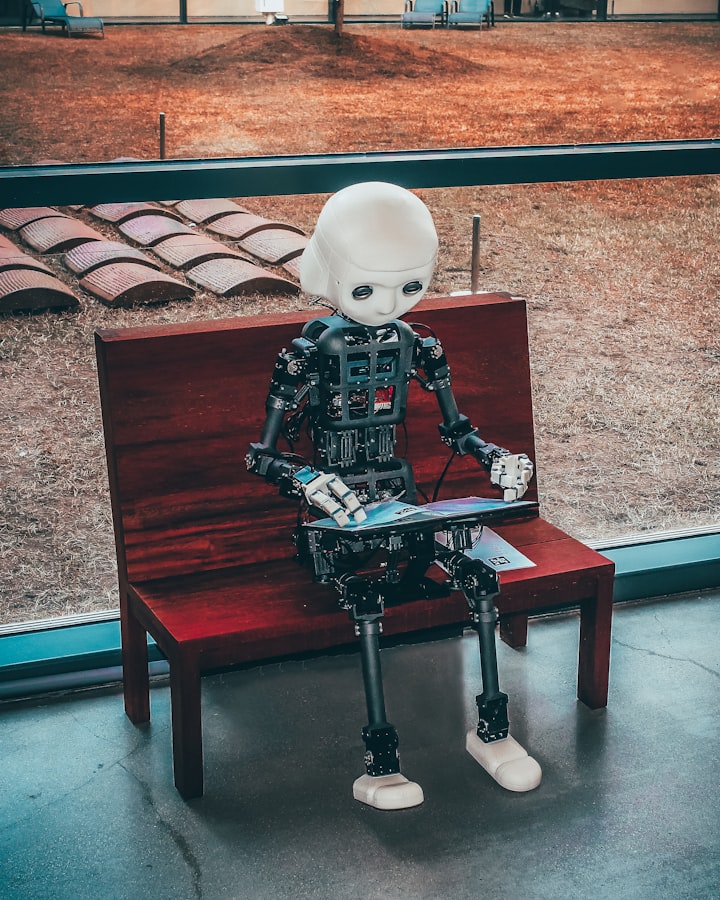Why AI Matters to Everyone
Exploring the Ubiquitous Influence and Potential of Artificial Intelligence in Modern Society

In the grand tapestry of human history, the story of technological advancement weaves a narrative of innovation, ingenuity, and progress. From the invention of the wheel to the harnessing of electricity, each milestone has propelled humanity forward, reshaping the way we live, work, and interact with the world around us. Yet, among the myriad of technological breakthroughs that have defined our civilization, few have captured the imagination and stirred as much intrigue as the rise of Artificial Intelligence (AI).
Before the advent of AI, the world existed within the confines of human intelligence—a realm shaped by the limitations of our cognitive abilities. While machines could perform repetitive tasks with precision, they lacked the cognitive flexibility, adaptability, and intuition inherent in human thought. Tasks requiring complex problem-solving, pattern recognition, and decision-making were the exclusive domain of the human mind.
However, the landscape began to shift with the emergence of AI—a field of computer science dedicated to creating intelligent machines capable of simulating human intelligence. Rooted in the quest to replicate and automate cognitive functions, AI promised to revolutionize every aspect of society, from healthcare and finance to transportation and entertainment.
At its core, AI is driven by data—the lifeblood that fuels machine learning algorithms, neural networks, and other AI techniques. By analyzing vast amounts of data, AI systems can identify patterns, make predictions, and autonomously adapt their behavior based on feedback—a process akin to human learning. This ability to learn and improve over time lies at the heart of AI's transformative potential.
In the realm of healthcare, AI holds the promise of revolutionizing disease diagnosis, treatment, and personalized care. By analyzing medical images, genomic data, and patient records, AI-powered systems can detect early warning signs of disease, identify optimal treatment regimens, and even predict patient outcomes with unprecedented accuracy. From cancer detection algorithms to virtual health assistants, AI-driven innovations have the potential to save lives, reduce healthcare costs, and improve patient outcomes on a global scale.
Moreover, in the field of education, AI is poised to reshape the way we teach and learn, ushering in a new era of personalized and adaptive learning. By leveraging AI algorithms to analyze student performance, preferences, and learning styles, educators can tailor instruction to meet the unique needs of each learner, fostering greater engagement, retention, and academic success. From intelligent tutoring systems to immersive educational simulations, AI-driven technologies have the power to democratize access to quality education and unlock the full potential of every student.
In the realm of sustainability and environmental conservation, AI offers innovative solutions to some of the most pressing challenges facing our planet. From climate modeling and weather forecasting to energy optimization and resource management, AI-driven technologies can help us better understand, predict, and mitigate the impacts of climate change. By optimizing energy consumption, reducing waste, and enhancing environmental monitoring and conservation efforts, AI has the potential to usher in a more sustainable and resilient future for generations to come.
Furthermore, in the realm of finance and business, AI is revolutionizing the way we make decisions, manage risks, and drive innovation. From algorithmic trading and fraud detection to customer relationship management and predictive analytics, AI-powered systems are transforming every aspect of the financial industry. By analyzing market trends, consumer behavior, and risk factors in real-time, AI-driven technologies can help businesses make more informed decisions, optimize operations, and gain a competitive edge in today's fast-paced global marketplace.
Yet, alongside the promise of progress, AI also elicits apprehension and concern. The prospect of intelligent machines capable of outperforming humans in various domains raises existential questions about the future of work, privacy, and even humanity itself. As AI permeates every facet of society, fears of job displacement, algorithmic bias, and loss of autonomy begin to take root, particularly among the younger generation.
For many youth, the rise of AI represents a double-edged sword—a source of both fascination and fear. While they marvel at the possibilities afforded by AI-driven technologies such as self-driving cars, virtual assistants, and personalized recommendations, they also harbor deep-seated concerns about the potential ramifications of unchecked AI proliferation.
However, just as previous generations embraced transformative technologies—from the printing press to the internet—so too must we approach AI with an open mind and a sense of optimism. Rather than succumbing to fear and resistance, we must recognize AI as a tool—a powerful instrument that, when wielded responsibly, has the potential to improve the human condition in ways previously unimaginable.
In the future, AI holds the promise of unlocking new frontiers in healthcare, education, sustainability, and beyond. From predictive analytics that revolutionize disease diagnosis to personalized learning platforms that cater to individual student needs, AI-driven innovations have the power to enhance human well-being, empower communities, and address some of the most pressing challenges facing humanity.
Moreover, by embracing AI as a force for good and prioritizing ethical considerations in its development and deployment, we can mitigate the risks associated with its adoption and ensure that it serves the collective interests of society. Through interdisciplinary collaboration, transparency, and ongoing dialogue, we can shape a future where AI works in harmony with humanity, augmenting our abilities and enriching our lives in ways that were once thought impossible.
In conclusion, the journey of AI—from its humble beginnings to its current ubiquity—represents a testament





Comments
There are no comments for this story
Be the first to respond and start the conversation.